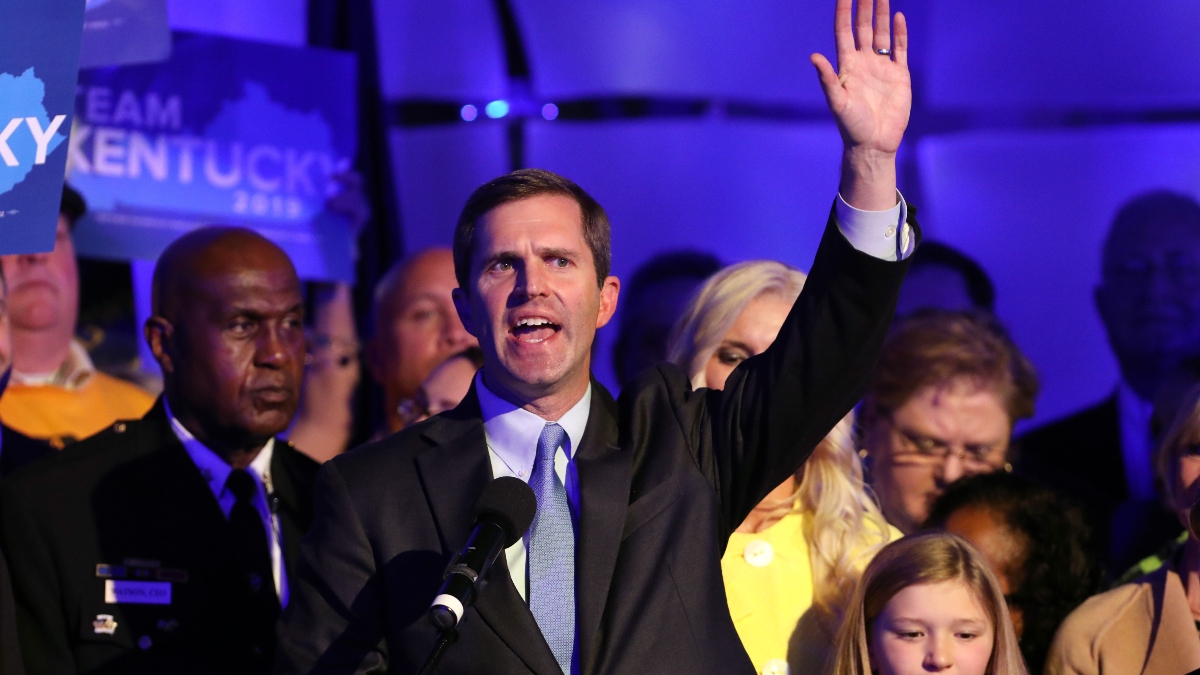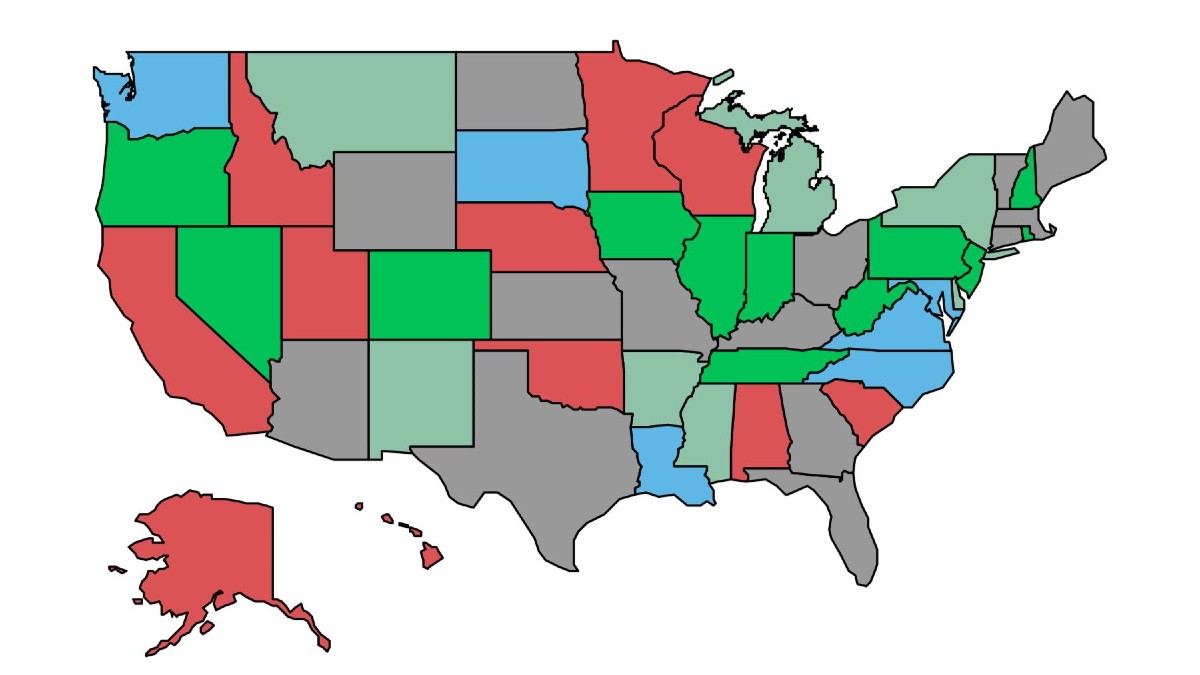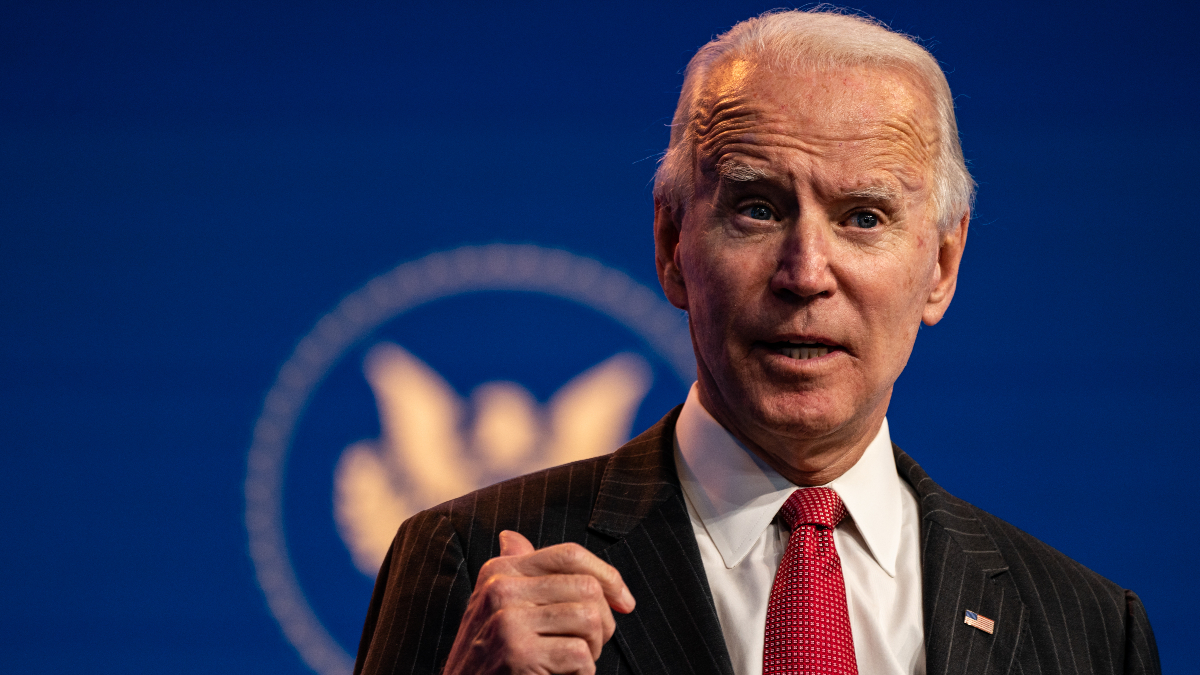
John Sommers II/Getty Images. Pictured: Kentucky Gov. Andy Beshear.
Two major court decisions this year have altered the playing field for Kentucky’s already limited gaming options, possibly adding more variables to the state’s already precarious sports betting hopes.
The Kentucky Supreme Court ruled Thursday that PokerStars will have to pay $1.3 billion in damages for offering illegal, real-money poker in the state from 2007-11, the culmination of a decade-long legal battle against parent company Flutter Entertainment, which also owns FanDuel. Flutter will likely challenge the amount awarded by the court, which includes damages plus interest, setting up further legal battles between the Kentucky government and the European gaming giant.
The ruling comes a few months after the court determined historic horse racing terminals, which allow players to bet on already conducted horse races, were illegal. The Family Foundation of Kentucky brought the lawsuit, arguing the machines were effectively illegal slot machines that wagering on traditional horse racing.
At a hearing before lawmakers Monday, horse racing stakeholders said the decision could cost Kentucky its status as “horse capital of the world,” the Louisville Courier-Journal reported. Historic horse racing terminals generated more than $700 million in revenue for the state horse racing industry in the past decade.
Next Steps for Kentucky Gaming
The PokerStars payout seems unlikely to thaw lawmakers’ online gaming opposition. Historic Horse Racing (HHR) may be a different story.
Senate Majority Leader Damon Thayer reaffirmed his HHR support repeatedly on Twitter, as well as both a legislative hearing and a Kentucky Chamber of Commerce event last week. As a Republican leader in a legislature with GOP supermajority control in both chambers, Thayer could help make sure HHR legislation passes this year, though opponents such as the Family Foundation argue it would require a constitutional amendment.
Leadership’s horse racing focus could be an avenue for legal sports betting hopes, but it also threatens to take up limited time and political capital in a more expansive — and less politically popular — gaming expansion. HHR backers such as Thayer have already phrased the games as an established aspect of its venerable horse racing industry, a more politically palpable option in historically gaming adverse Kentucky.
Sports Betting Difficulties Remain
The recent rulings come as sports betting backers face an uphill climb.
Democratic Gov. Andy Beshear has championed sports betting (and the state’s first-ever commercial casinos) since taking office in 2019 and reaffirmed that position during an address this week. Facing rising health care costs and dwindling tax revenues, Beshear has argued legal betting is one of several solutions to help alleviate the pain from what could be a difficult budgeting process in 2021.
While Beshear and Thayer agree on historic horse racing, they have not seen eye-to-eye on sports betting — or most other issues. GOP leaders have had a contentious relationship with the governor, working to limit his powers even before he took office. Thayer said a 2021 legislative priority is limiting the governor’s emergency executive powers, according to Kentucky radio station WUKY.
Republican state Rep. Adam Koenig will push sports betting legislation for a third consecutive year in 2021, which once again has the support of Beshear and many state Democrats. It remains to be seen if Republican leadership will back efforts this time around. Despite bipartisan support and an uncontested committee vote earlier this year, GOP leadership didn’t take up the bill in the 2020 legislative session.
Strong anti-gambling sentiment, backed by religious and conservative groups such as the Family Foundation, remains in the legislature, particularly among Republicans. It will be politically challenging for GOP leadership to advance the sports betting legislation until a majority of the caucus is on board.
Elected officials will have to consider sports betting, historic horse racing and a myriad of other, more consequential issues in only 30 legislative days. With historic horse racing set to take up the already limited political bandwidth for Kentucky gaming initiatives, it could be difficult to pass single-game sports wagering as well.
A pair of major 2020 court rulings mean Kentucky state coffers will (eventually) get a boost from PokerStars, but aside from the state-run lottery, it could be the only significant gaming revenues the state sees in the foreseeable future.

